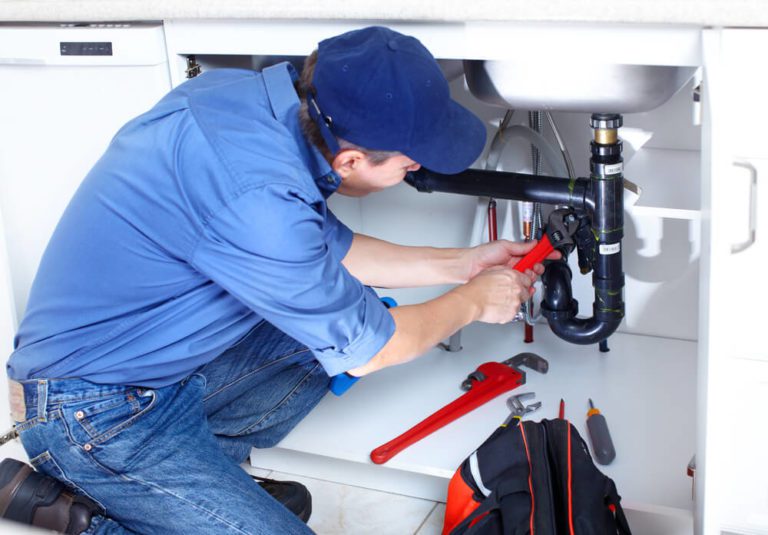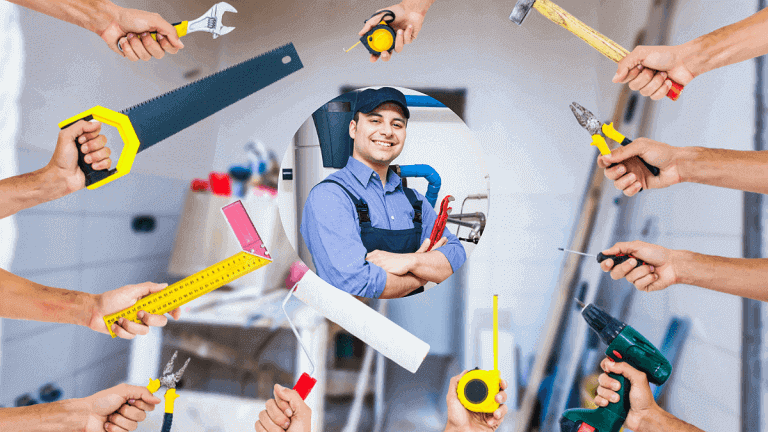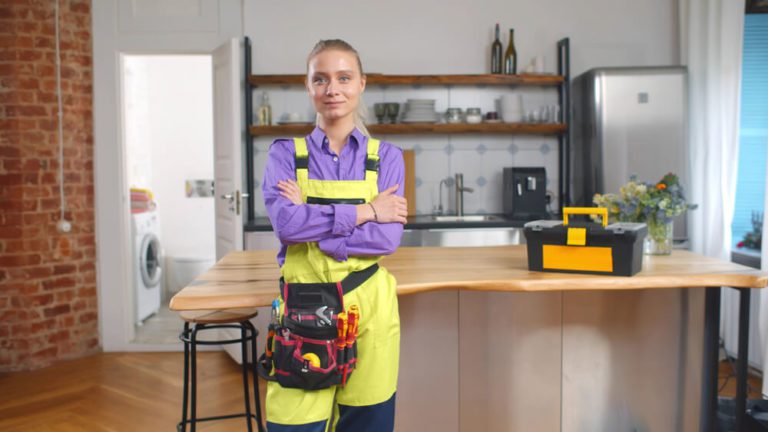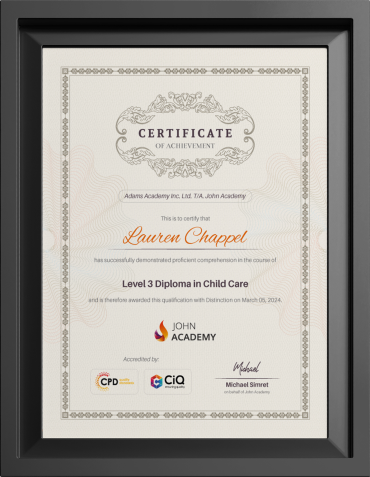
86% of the plumbers suggest other people to start their career in plumbing. And according to research, the plumbing field is expected to grow 12% at the end of 2024. So you’re thinking, “What qualifications do I need to be a plumber?”
The simple answer is you won’t need any academic qualification to become a plumber in the UK. But qualification can give you certain benefits such as getting a job. Anyone can start their plumbing career at any point in their life. So, if you are 30 and thinking about starting a new career, why not become a plumber.
Working as a plumber in the UK can be an extremely rewarding profession. Plumbing is an old fashion hands-on work, and it will never go out of business. Well, this is because every building requires pipework that needs to be installed, repaired or changed. As a plumber, you could be working by yourself or with partners. For instance, you could be working on sewage, drainage, drinking water and irrigation systems. You could be even working on a historical building to repair its old piping system.
Stick to the blog to know everything related to plumbing and what qualification you will need to be a plumber.
Table of Contents
Is This The Right Profession For Me?
Every person has their own opinion about a job. Some people may find one profession dull and mundane, while others find it very interesting. Therefore, plumbing can be challenging or rewarding, depending on the person.
There are many ways or routes you can take to become a plumber. For example, you can enrol in a college for a level 3 diploma degree in plumbing. Or, you can get trained and start working immediately. Because plumbing is a highly skilled profession, you will need specific plumbing skills and knowledge.
Maybe you are interested in becoming a plumber. So, before fully committing to this career, you should find out if you are up for it. It can save you from an unsuccessful career as well as save money, time and effort.
To work as a plumber in the UK, you will need to be:
- A critical thinker.
- Have a friendly attitude, since you will work on houses.
- Confident in your ability.
- Have highly developed technical and mechanical skills
- Manual dexterity.
- Have exceptional communication skills.
- Have problem-solving skills.
- Ability to work under pressure
- Good with strict deadlines.
So, what do you think? Are you ready to be a plumber? There is another way you can also find out whether the profession is right for you or not. You can take an online plumbing course on plumbing. Many companies provide this course for the beginner. For instance, you can take a plumbing course from John Academy at a very reasonable cost.
Keep reading to find out more about becoming a plumber and decide if this is the right decision for you.
Responsibilities and Duties
A plumber’s job could be challenging or rewarding, and it totally depends on the person. Plumbers carry out a variety of work in different places. Therefore, the duties can take a toll on your physical, mental and analytical ability.
However, knowing a little more about the day-to-day tasks will help you understand what it is. Also, help you decide if the plumbing is right for you. As a plumber, you may have to:
- Find out from the customer about the problem.
- Give customers time and cost estimates for jobs.
- Install water, drainage and heating systems in the building.
- Cut, shape and join pipes and fittings.
- Find and fix faults in a pipe.
- Install or repair domestic appliances like washing machines and showers.
- Install, repair or replace gas and oil-fired central heating systems and radiators.
- Respond to emergency call-outs, like blocked drains or boiler breakdowns.
- Install weather-proof materials, joints and flashings to roofs, chimneys and walls.
Skills
Plumbing is a highly skilled profession. Plumbers make sure buildings’ water and drainage systems are working safe and sound. Also, customers don’t employ workers who are not skilled. Therefore, you will need a variety of skills to do your daily work.
As a plumber, you will need:
- Customer service skills.
- Communication
- The ability to use your initiative.
- Technical Knowledge of machines and tools.
- A good Knowledge of math.
- Problem-Solving.
- Team working skills.
- Physically fit and are good with your hands.
- Knowledge of building and construction maps.
- Good computer skills to carry out basic tasks on a computer or hand-held device.
Related:
1. Match Your Skills To Areas of Employment Demand
2. 9 Practical Skills To Learn From Online Courses
3. 20 Essential Skills That Employers Are Looking For In 2024
4. Improving Customer Service Through Staff Training
Salary
In the UK, skilled plumbers are high in demand more than ever. As a plumber, you can earn around £15,000 – £40,000 per year. However, your starting salary will depend on your experience, training and skills. So, when you start working, you can make about £18,000 per year.
Your salary as a plumber will build over time as you build skills, knowledge and experience. After you achieve more skills and experience, your annual income will also increase. For instance, after two years working as a plumber, you can earn up to £30,000. An experienced and skilled plumber can make £40,000 or more in a year.
It can also depend on a variety of factors like location or the size of the company. However, you will get to earn money while working in different conditions. This can be very challenging and also rewarding for some people.
Working Hours
In the UK, skilled plumbers are high in demand more than ever. As a plumber, you can earn around £15,000 – £40,000 per year. However, your starting salary will depend on your experience, training and skills. So, when you start working, you can make about £18,000 per year.
Your salary as a plumber will build over time as you build skills, knowledge and experience. After you achieve more skills and experience, your annual income will also increase. For instance, after two years working as a plumber, you can earn up to £30,000. An experienced and skilled plumber can make £40,000 or more in a year.
It can also depend on a variety of factors like location or the size of the company. However, you will get to earn money while working in different conditions. This can be very challenging and also rewarding for some people.
How to Become a Plumber in the UK?
Plumbing is a highly skilled profession to work on. Therefore, you will need certain skills, training, and maybe some qualification to work as a plumber. However, you don’t need a degree or training in plumbing to work. But, a degree or training in plumbing can help you learn skills and work knowledge.
So, even as a school-leaver, you can pursue this career and become a plumber. You can get into this career through:
- A college course
- An apprenticeship
- Working towards this role
Through College
You can become a plumber by taking a course from a college. There are plenty of universities that provide plumbing and related courses. The colleges in the UK offer 1 to 2-year courses to start or improve your career as a plumber.
The courses are designed for people with experience and no experience also. However, the college courses must be accredited by an awarding body. The awarding body for plumbing courses is City and Guilds, EAL and BPEC. To be a plumber, you can take a:
1. Level 2 and level 3 Diploma course in Plumbing and Domestic Heating.
2. T level course for Plumbing and Domestic Heating Technicians.
Qualification you will need for a college course in the UK
You will usually need:
- 2 or more GCSEs at grades 9 to 3 (A* to D), or equivalent, for a level 2 course.
- Four or five GCSEs at grades 9 to 4 (A* to C), or equivalent, for a level 3 course.
- Four or five GCSEs at grades 9 to 4 (A* to C), or equivalent, including English and maths for a T level.
Through Apprenticeship Programmes
Another way to become a plumber is through an apprenticeship programme. Apprenticeships are a great way to enter the profession. In an apprenticeship programme, you can get the necessary training and experience to become a plumber. However, you have to be between 16 and 25 years old to start your apprenticeship.
You can attend an intermediate and advanced apprenticeship in plumbing and domestic heating. First, you must earn an NVQ Level 2 Diploma. After that, you will need to complete the Advanced Apprenticeship to achieve the NVQ Level 3 Diploma in plumbing.
However, an advanced apprenticeship program can take up to four years to complete. The good news is that UK governments fund these programs and provide placement.
Qualification you will need for an apprenticeship program in the UK
Well, to do an apprenticeship course, you will need:
- For an intermediate apprenticeship: Some GCSEs, usually including maths and English, or equivalent.
- For an advanced apprenticeship: 5 GCSEs at grades 9 to 4 (A* to C), or equivalent, including English and maths.
Visit career service to find an apprenticeship programme in England.
By Working
You could enter this career by working as a plumber’s assistant or ‘mate’. Also, you can do training on the job to qualify for this work. So, you’ll need some GCSEs, including English and maths. You will also need good practical skills to enter into this career.
However, you will need to register with a professional body in England. For example, you can get registered with the Chartered Institute of Plumbing and Heating Engineering (CIPHE). After that, you will need to post your resume.
Online Plumbing Course
You can also take a plumbing training course to learn the essentials. It is open to all people, and there is no formal entry requirement. However, you have to be above 16 years or older and have computer knowledge.
This course is delivered through an online learning platform. You can access this course and materials through any internet-connected smart device. Also, there are no formal deadlines or teaching schedules. So, you can study the course any time you want and at your own pace.
After successfully completing this online course from One Education, you will receive:
- An endorsed achievement certificate from the Quality Licence Scheme.
- CPD certification from One Education.
Also, experienced plumbers can take this plumbing training course to hone their skills and knowledge.
Career Progression
The career progression path of a plumber is:
Assistant or Mate > Plumber > Master Plumber.
Well, there are no official licences to work as a plumber in the UK. However, you should try out to get a short-term apprenticeship after completing the course. It will help you to get yourself up and running with your job. However, it’s not easy to get into an apprenticeship program right after graduating. Visit the national career service’s website for intern opportunities.
After completing the apprenticeship, you will have enough field experience to start your own business. Also, you can get a job with a company.
- To find contract and increase contact, you should:
- Get registered with a plumbing contractor.
- Enlist yourself in the local plumber directory.
- Get associated with the professional bodies who are involved in this field.
Conclusion
You will not need any academic qualifications to become a plumber in the UK. However, a plumbing career can be very challenging for some people or very rewarding. You will need to be physically good as well as good with your hands. Also, there are numerous responsibilities and duties you have to do on a daily basis. This is why some people may find it challenging.
However, there are plenty of job opportunities for a beginner and experienced plumber in the UK. You can work on your own or with a company. Also, you can earn up to £40,000 per year after getting experience. So, why not become a plumber and, by doing so, make a lot of money.
Read more blogs
- Cyber Hygiene for Students: A Guide to Safer Online Learning
- The Ultimate Guide to Scrape Dynamic Websites Using Headless Web Browsers
- Strategic Human Resource Planning: A Roadmap to Business Success
- How to Choose the Right Professional Development Course for Your Goals
- Maximise Your Marketing Campaigns by Using Top Keyword Research Tools
- How to Manage Remote Teams Effectively
- Tips for High School Students Planning a Future in Law
- What Happens After You Pass the Life in the UK Test: Next Steps for Immigrants
- How To Become A Paramedic In The UK? A Comprehensive Guide
- Why Online Tutoring is the Future of Education for Young Children






